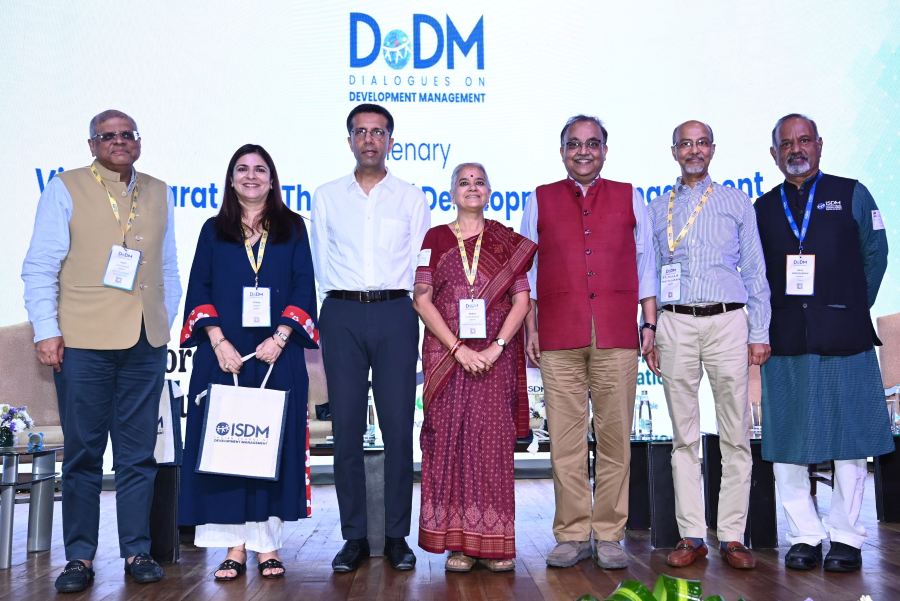New Delhi, August 22, 2025: The Indian School of Development Management (ISDM) hosted the third edition of Dialogues on Development Management (DoDM) 2025 at Dr. Ambedkar International Centre in New Delhi. The conference focused on reimagining the role of Social Purpose Organisations (SPOs) in India’s journey toward becoming a developed nation by 2047.
The event brought together over 80 speakers, 24 partners, and 20 sessions across four tracks: the art and science of decision-making, strengthening the core for social change, financing the future for social change, and delivering social impact at scale. Leaders from nonprofits, CSR teams, government agencies, and funding organisations participated in the discussions.
Distinguished speakers included Mirai Chatterjee, Director of SEWA; Ashish Dhawan, Founder-CEO, The Convergence Foundation; Amarjeet Sinha, Retd. IAS and Senior Fellow at the Centre for Social and Economic Progress; Amit Chandra, Co-Founder of A.T.E. Chandra Foundation; and Sonia Singh, Founder-CEO, SSA India.
Mr. Ashish Dhawan said, “A $10 trillion-plus economy is more than scale– it’s about building bold, resilient infrastructure underpinned by steady investments in human capital and innovation. At DoDM 2025, our focus is on exploring scalable financial models that blend private-sector rigour with social purpose, which have the power to unlock the full potential of India’s demographic dividend while honouring our environmental commitments. India’s march toward being a top-three global economy depends on financing that is sustainable, inclusive and visionary.”
Reflecting on the event, Mr. Ravi Sreedharan, Founder and Director, ISDM, said, “India stands at a critical juncture in its growth journey. To achieve the vision of a developed nation by 2047, our GDP must consistently accelerate from the current 6.5% levels to around 8%. But this cannot be growth for growth’s sake– it has to be underpinned by equal access to development capital, enabling innovation, entrepreneurship, and opportunities that uplift every segment of society. The future of Viksit Bharat depends on not just economic growth, but also making sure the gains reach every section of society, bridging urban-rural divides, and ensuring universal healthcare access for all Indians.”
Mr. Amit Chandra added, “As India pursues universal literacy, healthcare access, and net-zero carbon emissions by 2070, development management can help us combine innovation with ethical stewardship. Addressing rising inequalities requires adaptive strategies that synergise collaboration, capacity building, and catalytic change, with compassion at the core of it.”
The sessions emphasized the importance of equity, resilience, and community-driven solutions. Discussions included data-driven decision-making, resilient financing, and scalable impact, along with the need for stronger governance reforms and multi-sector partnerships to address unemployment, poverty, and education.
DoDM 2025 provided a platform for SPOs to explore ways of leading, sustaining, and scaling transformative impact as India works towards its vision of Viksit Bharat @ 2047.




















.jpg)



